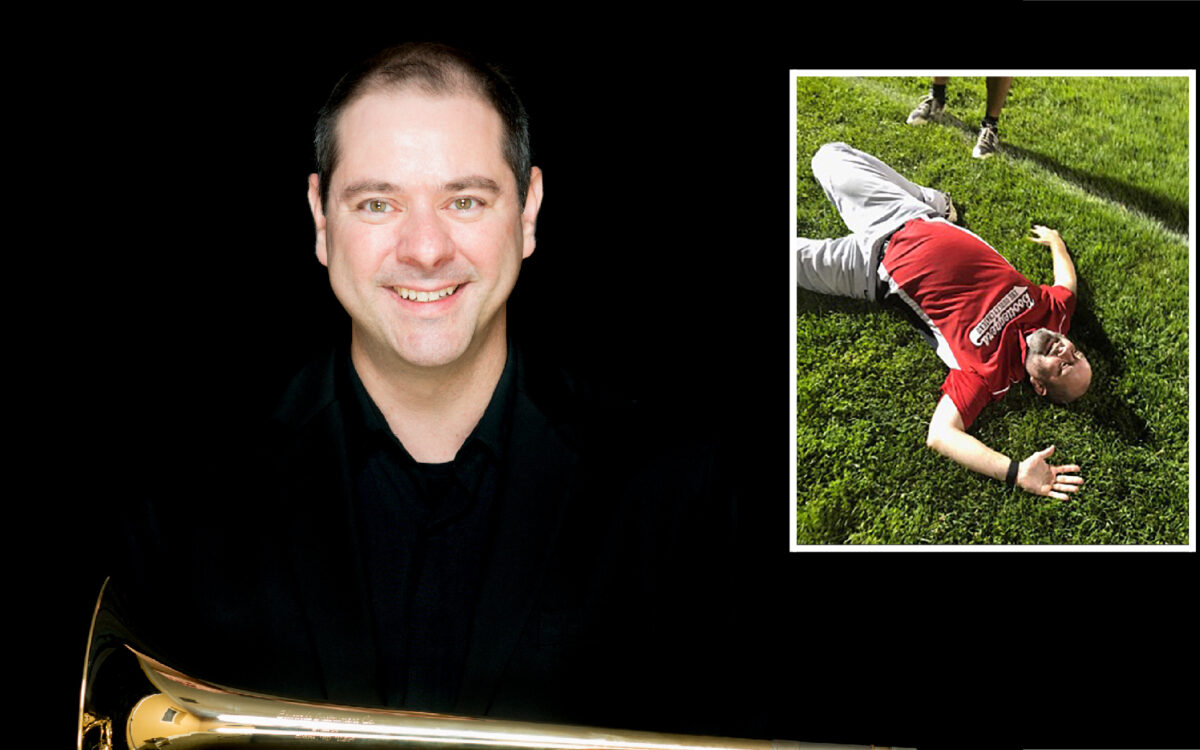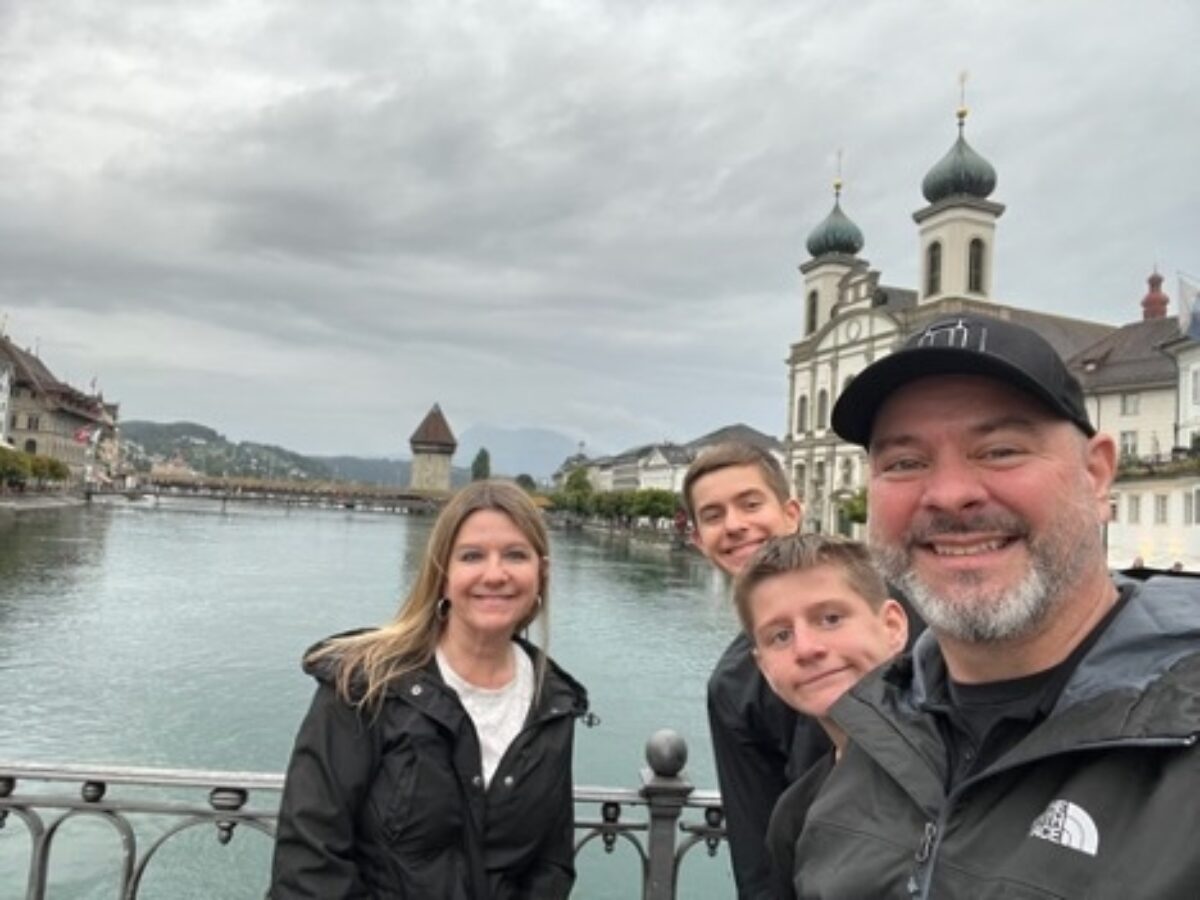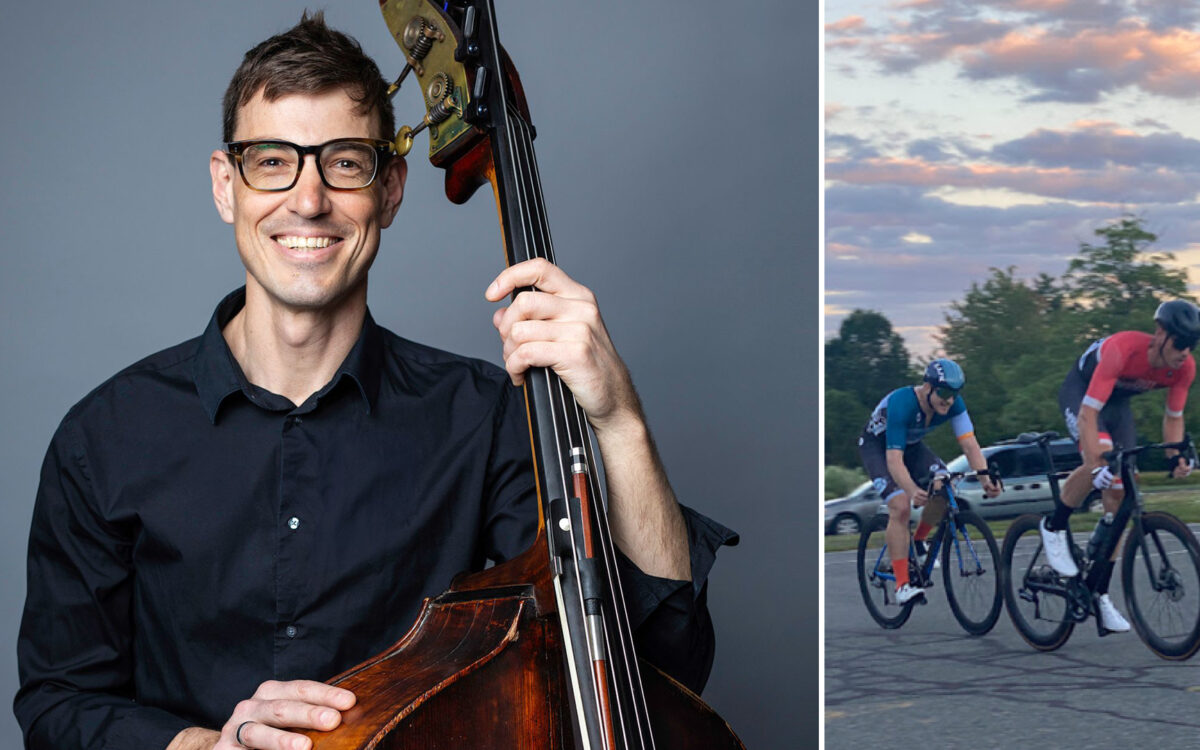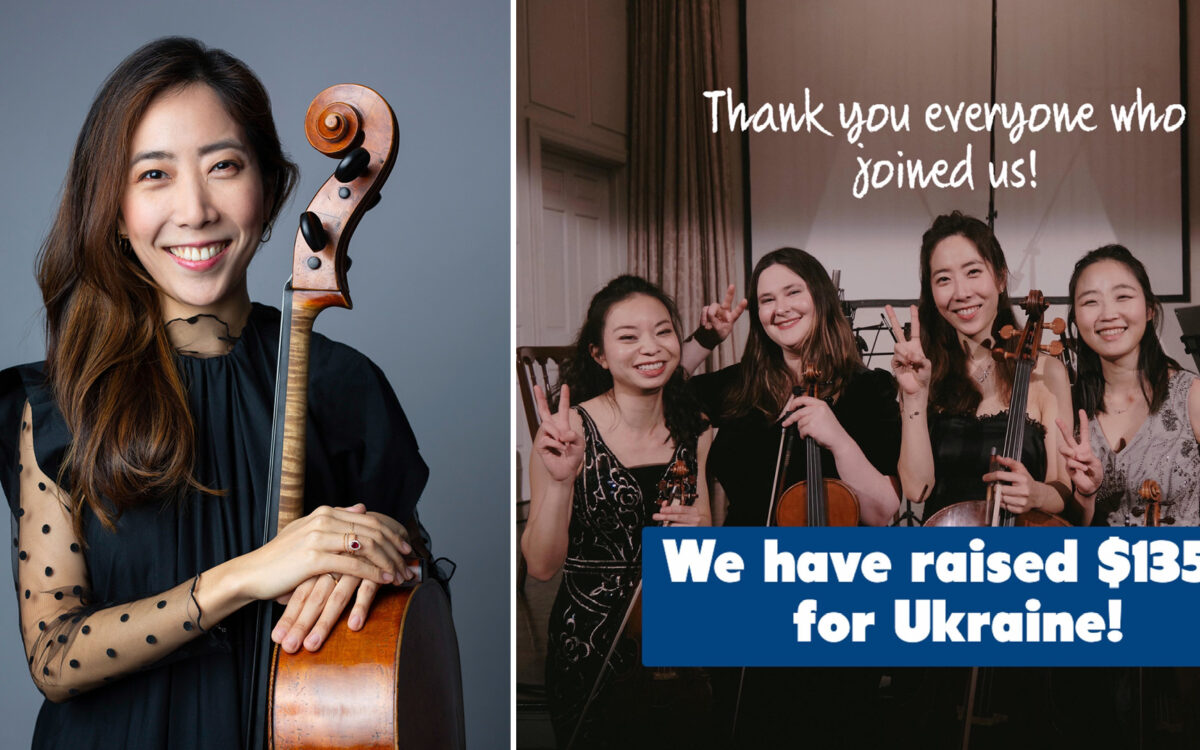For Trombonist Stephen Lange, the Necessity of Having a Plan B, Even if You’re Still on Plan A

When did music come into your life, and when did classical music become the thing for you?
It all went down when we had to register for either choir or band at my public elementary school in Dallas, Texas. In the 6th grade, choir was mandatory, which of course is not a bad thing, but there was this looming prospect that we had to sing a solo in front of everyone, and ironically, I desperately wanted to avoid that experience! So, pleading with my mom, I convinced her to take me to the instrument interview, where I tried all the instruments, but feeling a bit rebellious that day, I pretty much just wanted the biggest and loudest instrument they had, which was the trombone. The reaction from my parents was priceless! They told me I sounded like a dying cow!
I soon realized how lucky I was to have access to some of the best instruction one could have. I was exceptionally lucky to have fantastic instruction from my first band director, Lynne Jackson. She made it so much fun in 6th grade band. She would play “Tequila” on her trumpet, and I figured out how to play it on the trombone - to her delight!
Still, I had always wanted to play football, and I finally had the chance. I could have played for the junior high in 7th grade. That was my parent-approved plan; however, I changed my mind at the last second before turning the registration card and decided to be in the band instead. I’ll never forget erasing and rewriting my decision on the yellow card so many times it wore a hole through the paper.
Throughout middle and high school, band became more than just a musical pursuit; it evolved into a social experience that I thoroughly enjoyed. Ms. Jackson had directed me to Joe Dixon, my life-changing trombone instructor who guided me from middle school through college. The turning point came in senior year of high school when I began contemplating music as a potential career. Curiosity led me to investigate, and despite my parents not being musicians themselves, their only wish was for me to find happiness.
This exploration led me to Indiana University, where I initially enrolled as a performance major. However, the demands proved overwhelming, prompting me to reconsider my path. Fortunately, IU had a unique program, the Bachelor of Science in Music and an Outside Field. This cleared my schedule for classes in arts administration and business. I unexpectedly ended up with two degrees, as only one more theory class was needed for a Bachelor of Music and Performance.
Uncertain about the next steps after completing my degrees, I considered pursuing an MBA. Yet, fate intervened when, on a whim, I auditioned for Juilliard and secured a spot with the legendary Joseph Alessi of the New York Philharmonic. I decided to take the leap to see if this could be a viable career path.
So many of your colleagues went to, for example, Curtis and NEC and Julliard and studied performance. What was it that made you think “maybe this isn't for me”?
Dropping out of the performance degree my freshman year basically took the pressure away. It made me realize I can play music on my own terms and be fulfilled. Playing a musical instrument needs to be meaningful and enjoyable. I think being miles away from home, knowing what I was up against, hearing amazing students at I.U. - I needed that pressure to go away, because I wasn’t ready to handle it just yet.
That experience still makes me try very hard not to say to my wife or kids, "I'm going to work.” I say, "I’m going to rehearsal,” or “I’m going to play a concert.” I’m super fortunate to be able to “play” for living, and I want to still enjoy “playing” for a living.

Has the business training helped you?
It helped me realize I could go do something else if I needed to. And I could still be happy doing it. Coming from a nonmusical background, it wasn’t necessarily to appease my parents as much as it was to just be confident that I could be successful. It also allowed me to take more risks as a musician, knowing that I always had something in back pocket.
I witnessed this during my time in school. Whether it was injuries or unexpected events, our physical well-being can be delicate. To sustain a career in performance over the long term, I strongly believed in the importance of being prepared to engage in other pursuits.
If you weren't involved in playing the trombone, what do you think you’d be doing?
That's a really good question - I think about this from time to time. I believe I would likely explore something in arts administration. I have a strong interest in technology, so I might navigate towards that field or a combination of those two. I hold a deep passion for our music industry, and I am committed to contributing to its continual progress. And if that didn’t work out, I would start up a restaurant serving my both my culinary passions: Tex-Mex cuisine and Texas style BBQ. Maybe that’s what I’ll do when I retire!
However, life has taken its course, and I couldn't be happier or more fortunate. Playing professionally is a privilege, and being part of the BSO has been an incredible journey. Time has flown by since I joined, from the audition to the present moment. Stepping into the hall and creating the art we do always serves as a reminder of how special this place is.
String players are typically on stage throughout a concert. What do the brass and woodwind players do when they're not actively performing in a piece?
It’s super top secret. I'm not sure if I can spill the beans, as it might jeopardize my brass card. But I can give you a hint: we might have rotating disco ball hanging in our locker room.
What's it like when you have to sit through an entire symphony and then only contribute a few notes at the end?
It's a common occurrence for us trombone players. The challenge lies in the fact that the notes we play are distinct and quite audible, even when playing soft chorales. So, we sit there, fully engaged, anticipating our entry point. It demands acute listening skills because there's no chance for a warm-up.
Take, for example, Brahms' First Symphony, where we patiently wait through the first three movements, which is usually close to about 30 minutes. Then, Brahms brings in the trombones to help settle the key change to C Major — but that’s just a few notes. Then the orchestra stops and finally yields to one of the great moments in all symphonic repertoire — the famous trombone chorale! One has to really hear and feel the first entrance. It’s all part of the mental preparation needed for these defining moments.
When you're not listening to classical music what are you listening to?
Metallica, Bad Bunny, New Order, Depeche Mode, Lizzo, Felger and Mazz, Blondie, Devo, Pitbull, Dr. Dre, Black Eyed Peas, David Guetta, Dua Lipa, Colin Cowherd, Eurythmics, Lady Gaga, Front 242, Max Richter, Chicago, Tool, Frank Sinatra, Architects, Linkin Park, Madonna, Beyoncé, DJ Khalid, Dick Nash, Mick Gordon, Flamingos, NLE Choppa, Lil’ Tecca, Flo Rida, Doja Cat.
Some of these are because of my kids. Otherwise, I’m happiest when I have time to listen to Voces 8.
When you're not teaching or rehearsing, what are some non-musical hobbies you’re into?
Teaching has become a significant aspect of my life and working with students aspiring to follow a similar path has been a true blessing. When not immersed in teaching or performing, my preferred pastime is simply spending quality time with my family, going to their soccer, basketball, and baseball games. When I have time on the weekends, I really enjoy the art of smoking central Texas style briskets. And Sunday nights are filled playing softball in a town league, and it’s a wonderful opportunity to connect with the community and indulge in my favorite sport. I was on the DL this past season, but I hope to be back with the team next season.

Lightening round!
Do you have any pre-concert rituals?
My ritual is to buzz my mouthpiece on my way to a performance or rehearsal. When I arrive, I play through my customized 15-minute warm-up and touch up any passages that are needed.
What’s your favorite place to grab food around Symphony Hall?
My favorite place these days is Sprout, and my current order is the Muy Thai.
How about in the Berkshires?
Loeb’s Food Town. And I like to barbecue. That’s my thing out there. I bring my smoker and I try to do as much barbecue as I can and hope the bears don’t disturb the smoker.
What is your coffee or tea order?
Americano with half-and-half and some sort of sweetener. I love great coffee but I’m not a purist.
What’s your favorite pizza topping?
I'm going to be that guy and say anchovies. Thanks Mom!
That’s a bold choice!
I’m thankful my wife can tolerate it every once in a while!

Maya Shwayder is the BSO's Senior Contributing Editor and Copywriter.



